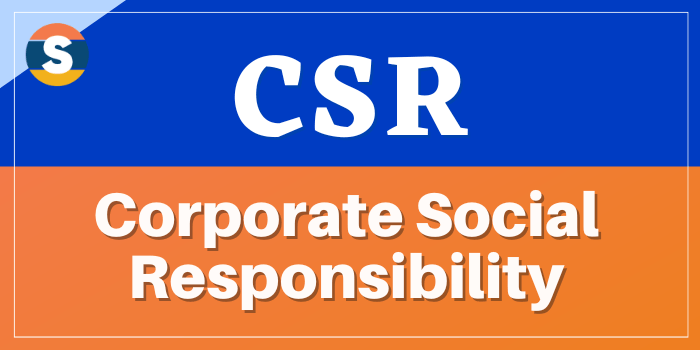
The Full form of CSR is Corporate Social Responsibility. It refers to a business model or a set of actions that a company takes by changing its business operations to consider the interests of its stakeholders and society by taking responsibility for the impact of their activities on employees, customers, stakeholders, communities and the environment. CSR makes a company socially accountable towards public and makes it conscious of the impact they have on different aspects of society such as social, economic, and environmental.
CSR requires companies to manage their business operations in such a way that it produces an overall positive impact on the society. It says that a company along with doing its business should also perform its social duties that may include: helping the public during natural disasters or calamities like earthquakes, floods, and drought, giving monetary and non monetary donations to various NGOs, promoting talent in the field of cultural activities, sports, entrepreneurship, taking initiatives to reduce water pollution, air pollution, and more.
Through the Companies Act, 2013 legislation, India became the first country that quantified and mandated CSR expenditure to be done by the companies. This step was taken considering the businesses to engage with the agenda of national development. This act came into force in India from 1st April 2014.